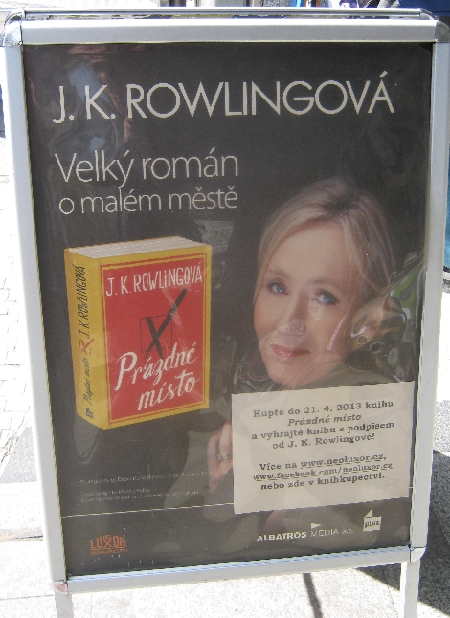
One of the complications of the Czech language, is that nouns have different endings according to their gender and the case being used. As consequence, nearly all Czech females, have a surname that is slightly different from, and longer than, the surname of their father or husband, from which it is derived. In most cases, this occurs by the addition of ‘ová’ onto the end of the male surname.
The obvious example to illustrate this point, is the now-retired, famous Czech tennis player Martina Navrátilová. Martina’s step-father, who married her mother when she was six, is Miroslav Navrátil. She took his name and thus is Martina Navrátilová. There are some exceptions to this rule, which arise when the male surname ends in a vowel. Sticking with Czech tennis players, the country’s current best female player is Petra Kvitová. Her father is Jirí Kvita. The ‘a’ on the end of his surname is dropped and the ‘ová’ is added.
The grammatical reason for this change is it being in the genitive case. And what does the genitive case indicate? Possession! Effectively it is saying that the Czech woman is the possession of the man, either her father or husband. It is an interesting concept for any Czech woman who thinks of herself as being a feminist 🙂
Whilst it is not my place to question the grammatical rules of the Czech language, what I do find absurd and inappropriate, is applying these same rules to the surnames of women who are not Czech. What really brought this to my attention was in November 2010, when the engagement of Prince William to Kate Middleton was announced. As far as the Czech media were concerned, both television and newspapers, Prince William was now engaged to a lady called Kate Middletonová. I am sorry folks, but a lady with the name Kate Middletonová, does not exist.
A more recent example I came across, was when watching a live broadcast of the London Olympics on my computer last summer. CT4, Czech TV’s sports channel, was broadcasting the games, using the coverage provided by the BBC. It was the final of a sprint race for women. Almost exclusively, the competitors were black Africans or ladies from the Caribbean. As these competitors got down on their blocks, the BBC pictures showed captions with their wonderfully different names and the countries they were representing. But the Czech commentator still told his audience what the name was of each competitor, adding ‘ová’ to each and every one of them. It was utterly absurd.
My photograph illustrates very clearly, the point I am making. It shows an advertising poster for the Czech translation of the recently published adult novel, entitled in English as, ‘The Casual Vacancy’, by the author of the Harry Potter stories, J. K. Rowling. But as you can see, the Czech publisher feels obliged to tell you that it is actually written by a British author who appears to be drunk as she is J. K. Rowlingová – ‘J. K. Rolling over’ 🙂 .
But change is slowly coming – both at an official and unofficial level. A change in the law some years ago, does now mean that a non-Czech woman, who marries a Czech man, is no longer required to put ‘ová’ onto the end of her new surname. Thus there are two American ladies in the St. Clement’s congregation who are married to Czech men, who have the surnames, ‘Novak’ and ‘Vacik’, rather than ‘Novaková’ and ‘Vaciková’. Unlike in the UK or the USA, as part of the legal preliminaries to a Czech wedding, the couple have to declare what surnames they will use following their marriage, and must sign their Marriage Protokol during the marriage ceremony, using those agreed names.
Also unofficially, a number of Czech publishers are now publishing books by non-Czech female authors, translated from English and other non-Slavic languages, into Czech, without altering the author’s surname. Likewise, posters for Hollywood films being shown here, either with subtitles, or more commonly dubbed, are increasingly not featuring those unknown actresses, Jennifer Anistonová and Cameron Diazová, but featuring Jennifer Aniston and Cameron Diaz.
I am sure this change will not please some Czech language purists but in my opinion, it makes perfect sense. After all, when writing in English about the latest tennis match played by Petra Kvitová, no one would dream of calling her Petra Kvita.
